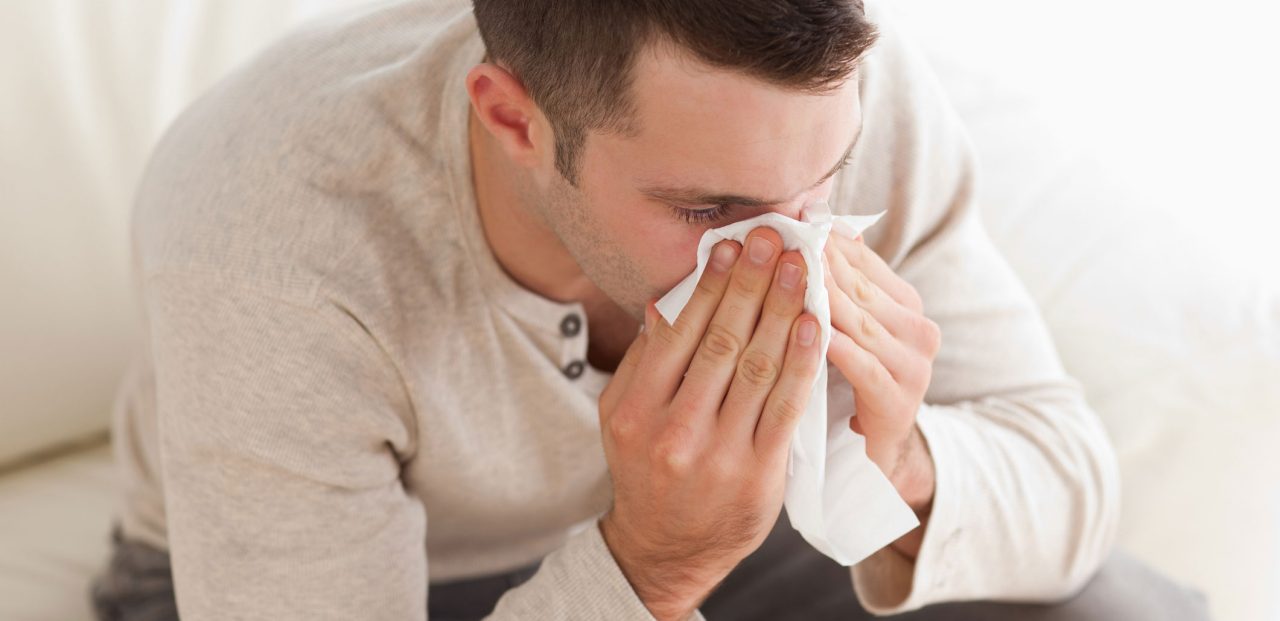How Long Is a Cold Contagious?

Your nose runs, body aches, and throat hurts. Staying home sounds wonderful. But you really need to work. How long is your cold contagious? It can be days to weeks.
How long is your cold contagious?
When you have a cold, you’re most contagious during the first two days before the symptoms start and up to two full weeks after you’re exposed to the virus. Your coworkers and your child’s classmates and teachers will appreciate it if you or your child stays home during that period. In truth, they’ll view you as a walking germ factory.
YOU MIGHT ALSO LIKE: Our Cold and Flu Season section
How you can spread your cold
If you your cold is a respiratory infection, each time you sneeze or cough, you release bacteria- or virus-filled particles into the air. Depending on how hard you sneeze or cough, you could send tiny particles as far as six feet. So, if someone is within range, he or she is likely to get infected.
If you get an infected person’s germs on your hands and then place your hands on your face, there’s a good chance you’ll catch the cold. If you have the cold and get any bacteria or virus-filled particles on a cup, utensil, doorknob, countertop, or phone, those particles are contagious for up to 24 hours.
Don’t share food, utensils, cups, or anything else. If you touch such items, wash them in hot soapy water. If you have a cold, don’t let others use your phone, and disinfect it after you use it. Make sure to wash your hands often.
How you can get rid of your cold
If you have a cold, stay home, rest, and drink plenty of non-caffeinated fluids. You can also take over-the-counter medicines for coughs, runny noses, and fevers. Multi-symptom drugs are also available at most drug stores.
Colds versus allergies
Having many symptoms of a typical cold doesn’t mean you have one. You could be suffering from an allergy, which is not contagious. A lot of allergens — such as pollen, pet dander, dust mites, and mold — can cause sneezing, watery eyes, and stuffy noses. Over-the-counter allergy medicines can often treat them. If symptoms persist and medication doesn’t work, see an allergist.
If it’s a common cold, you’ll have to let it run its course. Within a few days, your cold should go away, and you’ll be able to go back to work or school.
Once you’re back to your regular routine, let your co-workers or your child’s classmates and teachers know that you’re feeling better. Even though you’re better, always wash your hands so you’re not picking up or spreading germs. You should also remember to sneeze or cough into your elbow, not your hands.
In addition to washing your hands often, you can also follow some common-sense approaches to slow the spread of a cold.
- Disinfect utensils, your office phone, desk, and keyboard, and any other item that may be shared.
- Keep a box of tissues on hand and use them.
- Don’t share drinks, food, utensils, or anything you touched.
- Let people know you are getting over a cold. Keep your distance. If they have a cold, don’t hug, kiss, or shake hands with anyone.
The old tried and true traditions of getting plenty of rest and drinking lots of fluids work. It’s also kind to avoid contact with family and friends so they won’t catch your cold.
Updated:
June 27, 2023
Reviewed By:
Janet O’Dell, RN